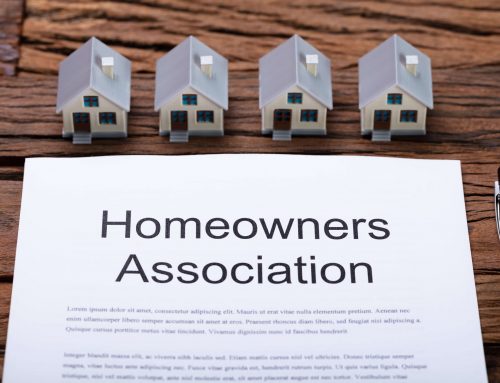Is it really a dog’s world? Service Animals and Emotional Support Animals in restricted HOA/Condo Areas
August 25, 2020 | by Jessica D. Smith
Service Animals and Emotional Support Animals have become hot-button topics in Kentucky, especially concerning Homeowner Associations and Condominium Associations. One question that frequently arises is whether an Emotional Support Animal is allowed in common or restricted areas of such Associations (i.e., pools, tennis courts, clubhouses).
This article will analyze:
- The definition of Service Animals and Emotional Support Animals at the federal and state level;
- General Federal and Kentucky statutory law regarding Accommodations;
- Whether Emotion Support Animals are generally allowed in common or restricted areas of Homeowner Associations and Condominium Associations; and
- Restrictions/Rules to which Emotional Support Animals are still subject in common or restricted areas of Homeowner Associations and Condominium Associations.
- The Definition of Service Animals and Emotional Support Animals
In reviewing the definition of Service Animals and Emotional Support Animals, one must consider both the federal law regarding assistance animals (in this case, the Fair Housing Act) and Kentucky statutory law. For purposes of federal regulations, service animals have been defined as:
any dog that is individually trained to do work or perform tasks for the benefit of an individual with a disability, including a physical, sensory, psychiatric, intellectual, or other mental disability. Other species of animals, whether wild or domestic, trained or untrained, are not service animals for the purposes of this definition. The work or tasks performed by a service animal must be directly related to the individual’s disability. Examples of work or tasks include, but are not limited to, assisting individuals who are blind or have low vision with navigation and other tasks, alerting individuals who are deaf or hard of hearing to the presence of people or sounds, providing non-violent protection or rescue work, pulling a wheelchair, assisting an individual during a seizure, alerting individuals to the presence of allergens, retrieving items such as medicine or the telephone, providing physical support and assistance with balance and stability to individuals with mobility disabilities, and helping persons with psychiatric and neurological disabilities by preventing or interrupting impulsive or destructive behaviors. The crime deterrent effects of an animal’s presence and the provision of emotional support, well-being, comfort, or companionship do not constitute work or tasks for the purposes of this definition.
28 CFR 36.104. According to this definition, “service animal” is limited to any dog that has been individually and specifically trained to help the individual with a disability. Federal courts have recognized one exception to this in that a miniature horse can qualify as a service animal as well. Anderson v. City of Blue Ash, 798 F.3d 338 (6th Cir. 2015); Service Animals and Emotional Support; ADA Requirements Service Animals, https://www.ada.gov/service_animals_2010.htm.
An emotional support animal is more broadly defined for federal purposes. Federal courts have defined an emotional support animal as “any animal the presence of which ameliorates the effects of a mental or emotional disability.” Overlook Mut. Homes, Inc. Spencer, 666 F. Supp. 2d 850, 861 (S.D. OH. 2009). The purpose of an emotional support animal is to “provide companionship, relieve loneliness, and sometimes help with depression, anxiety, and certain phobias.” Service Animals and Emotional Support. However, these animals do not have special training to perform tasks assist people with disabilities. Service Animals and Emotional Support. Thus, the requirement of individual training is removed in the case of emotional support animals. Further, said animals are not limited to dogs and miniature horses. Moreover, the housing provider may not place breed, size, and/or weight restrictions on these animals. HUD FHEO Notice: FHEO-2013-01, Subject: Service Animals and Assistance Animals for People with Disabilities in Housing and HUD-Funded Programs.
Kentucky’s most recent legislation regarding the issue, KRS 383.085, takes a broader stance on both animals’ definition. Kentucky lumps both classifications of animals together as “assistance animals.” These animals have been defined as:
An animal that works, provides assistance, or performs tasks for the benefit of a person with a disability, or provides emotional support that alleviates one or more identified symptoms or effects of a person’s disability. This shall include a service animal specifically trained or equipped to perform tasks for a person with a disability, or an emotional support animal that provides support to alleviate one or more identified symptoms or effects of a person’s disability.
KRS 383.085(1)(a).
- Federal and Kentucky law regarding Accommodations
The Federal Housing Act (FHA) requires housing providers to make reasonable accommodations necessary to allow persons with disabilities to enjoy their housing. The Fair Housing Act has defined a “reasonable accommodation” as a change, exception, or adjustment to a rule, policy, practice, or service that may be necessary for a person with a disability to have equal opportunity to use and enjoy a dwelling, including public and common use spaces. Joint Statement of the Department of Housing and Urban Development and the Department of Justice, Reasonable Accommodations Under the Fair Housing Act.
HUD has further indicated that, when considering whether to grant a reasonable accommodation, the housing provider must consider the following:
- Does the person seeking to use and live with the animal have a disability — e., a physical or mental impairment that substantially limits one or more major life activities?
- Does the person making the request have a disability-related need for an assistance animal? In other words, does the animal work, provide assistance, perform tasks or services for the benefit of a person with a disability, or provide emotional support that alleviates one or more of the identified symptoms or effects of a person’s existing disability?
Where the answers to both questions are “yes,” the housing provider must modify or provide an exception to a “no pets” rule or policy to permit a person with a disability to live with and use an assistance animal(s) in all areas of the premises where persons are normally allowed to go, unless doing so would impose an undue financial and administrative burden or would fundamentally alter the nature of the housing provider’s services.
Housing providers may ask individuals who have disabilities that are not readily apparent or known to the provider to submit reliable documentation of a disability and their disability-related need for an assistance animal. If the disability is readily apparent or known but the disability-related need for the assistance animal is not, the housing provider may ask the individual to provide documentation of the disability- related need for an assistance animal. HUD FHEO Notice: FHEO-2013-01, Subject: Service Animals and Assistance Animals for People with Disabilities in Housing and HUD-Funded Programs.
Kentucky’s law is quite similar. KRS 383.085(2). The major difference is that “reliable documentation” of the disability may be provided by someone who has a “therapeutic relationship” with the individual. KRS 383.085(2). A therapeutic relationship simply means the provision of medical care, program care, or personal care services, in good faith, to the person with a disability by (1) a licensed clinical social worker who holds a valid, unrestricted state license under KRS 335.100 and who maintains an active practice within the state (2) a professional counselor who holds a valid, unrestricted state license under KRS 335.525 and who maintains an active practice within the state (3) an advanced practiced registered nurse who holds a valid, unrestricted state license under KRS 314.042 and who maintains an active practice within the state (4) a psychologist who holds a valid, unrestricted license under KRS 319.050 or 319.053 and who maintains and active practice within the state or (5) a physician who holds a valid, unrestricted state license under KRS 311.571 and who maintains an active practice in the state. KRS 383.085(1)(b).
- Emotion Support Animals in common and/or restricted areas of Homeowner Associations and Condominium Associations.
Both the FHA and Kentucky statutory law require housing providers to make reasonable accommodations that may be necessary to allow persons with disabilities to enjoy their housing. Both the FHA and Kentucky statutory law contemplate common areas in that definition of “housing.”
More specifically, the FHA has defined a “reasonable accommodation” as a change, exception, or adjustment to a rule, policy, practice, or service that may be necessary for a person with a disability to have equal opportunity to use and enjoy a dwelling, including public and common use spaces. Joint Statement of the Department of Housing and Urban Development and the Department of Justice, Reasonable Accommodations Under the Fair Housing Act.
Further, Kentucky statutory law indicates that any person with a disability who is granted a reasonable accommodation to maintain an assistance animal in a dwelling “shall comply with the rental agreement or any rules and regulations of the property owner applicable to all residents that do not interfere with an equal opportunity to use and enjoy the dwelling and any common areas of the premises.” KRS 383.085(4).
Again, a reasonable accommodation is usually one that does not impose an undue financial and administrative burden on the housing provider, or that does not fundamentally alter the nature of the provider’s operation.
So what if an owner wants to bring an emotional support dog into a pool lounge area where pets are normally restricted? The pool areas would be a common use space, which is covered by the FHA and Kentucky statutory law. The pet restriction may be seen as a barrier from allowing the resident to use and enjoy the pool area. Under typical circumstances, allowing an emotional support dog to utilize a common area from which pets are typically restricted would not create an undue financial or administrative burden on a Homeowner’s Association or on a Condominium Association. Also, it would not likely be seen as fundamentally altering the nature of the housing provider’s operation—(i.e. in this example, providing housing with pool access).
- Restrictions/Rules to which Emotional Support Animals are still subject in common and/or restricted areas of Homeowner Associations and Condominium Associations.
However, just because an emotional support animal may be allowed in a normally restricted area doesn’t mean it has carte blanche. For example, if leashing laws exist under the Association restrictions or under local law, an owner must follow them. Further, the Association may be allowed to restrict the animal’s presence if it creates a nuisance in violation of the Association’s regulations or local law, (i.e. excessive and uncontrolled barking by a dog). If the animal poses a threat of harm to another individual or to property, its presence may be restricted by the Association, (but this must be based upon objective evidence of the dog’s actual conduct-not on mere speculation). Further, public health regulations would generally prohibit the animal from entering the water, and if the owner enters, he must still ensure that the animal remains under control.
Moreover, the Homeowners Association or Condominium Association may have some protection from liability should an emotional support animal cause harm. KRS 383.085 provides that, notwithstanding any other laws to the contrary, a landlord shall not be liable for injuries by a person’s assistance animal permitted on the landlord’s property as a reasonable accommodation to assist the person with a disability pursuant to the Fair Housing Act, as amended, 42 U.S.C. secs. 3601 et. seq., the Americans with Disabilities Act of 1990, 42 U.S.C. secs. 12101 et. seq., and Section 504 of the Rehabilitation Act of 1973, as amended, 29 U.S.C. sec. 701, or any other federal, state or local law. Although this statute references “landlord,” (i.e. implying a rental situation), the argument could be made that it should be likened to Homeowner Associations and Condominium Associations as well.






Leave A Comment